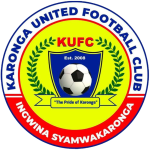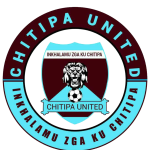Delegates Southern African Development Community (SADC) Member States have converged in Salima from the Sixth SADC Biennial Regional Policy Exchange Experts’ Workshop on Indigenous Knowledge Systems (IKS).
The Minister of Education Madalitso Kambauwa Wirima officially opened the three-day workshop, which is being held under the theme: “Leveraging Indigenous Knowledge Systems in the Agro-processing and pharmaceutical value chains for industrial development.”

National Commission for Science and Technology (NCST) is anchoring the organization of the workshop in its mandate and pursuit of promoting, supporting, coordinating, and regulating the development and application of science, technology, and innovation.
In her remarks, Kambauwa-Wirima touted IKS as having great potential to provide solutions to some of the global challenges, including fast-tracking the attainment of Sustainable Development Goals (SDGs).
She called for concerted and collaborative efforts in safeguarding IKS and protect rights and autonomy of the indigenous communities.
“As we stand on the brink of unprecedented global challenges, it is essential that we acknowledge and appreciate the invaluable wealth of IKS that has been cultivated and passed down through generations. These systems, often rooted in traditional practices and local ingenuity, represent a profound connection to the environment and offer an array of solutions that can guide us towards a more sustainable and harmonious future of SADC member states,” she said.
Kambauwa-Wirima emphasized that the intrinsic value of IKS does not only lie in its ability to provide insights into the intricate workings of the natural world, but also in its profound understanding of community dynamics and human relationships.
She said IKS can help governments and states to end hunger by 2030 by doubling agricultural productivity and incomes of small-scale food producers, in particular women, indigenous peoples, family farmers, pastoralists and fishers.
“IKS offers a lens by which people can comprehend the delicate interplay between humans and nature, fostering a deeper respect for the delicate balance that sustains our planet earth. It can also help in sustainable land management practices, promote biodiversity, traditional healing methods derived from natural resources, and many times, these systems embody a wealth of knowledge that can contribute significantly to modern scientific research and development. By integrating this ancient wisdom with contemporary technological advancements, all of us in the SADC region working together through enabling policy environments, can unlock innovative approaches to environmental conservation, public health, and sustainable development,” said the minister.
Speaking earlier, NCST Director General, Gift Kadzamira, said IKS plays a crucial role in elevating lives and well-being of the people.
Kadzamira therefore challenged SADC member states not to allow the future generations to judge them harshly for not protecting the systems.
“The time to act is now and we must act with a sense of urgency by protecting the knowledge and innovations that may be lost or stolen if we don’t digitalize or patent them,” she said.
In her remarks, SADC Senior Programme Officer responsible for Science Technology and Innovation, Anneline Morgan, said the purpose of this 6th IKS policy workshop is to promote dialogue and knowledge sharing on the development and implementation of national IKS policies by the SADC Member States and to promote SIPS Programme that raise awareness about some of its initiatives that focus on the development and production of IK-based herbal remedies and innovative integrated electronic application to disseminate HIV/AIDS treatment guidelines and enhance regulatory and supply chain efficiencies in the management of HIV/AIDS and associated opportunistic infections through grants that have been awarded under the programme and exhibit SIPS programme.

Morgan disclosed that the specific objectives of the workshop are to disseminate and publicize as widely as possible, the SADC Policy tools and instruments to create awareness on the opportunities and benefits of investments on IKS in the region; fast-track the development of the national IKS policies and share progress and challenges encountered by Member States in developing and implementing the national IKS policies.
She added that participants to the workshop will develop strategies/approaches for the implementation of the approved SADC policy tools and instruments: i) Resource Mobilisation Toolkit: Writing Proposals for Scientific Research and Innovation Projects; ii) Research Ethics Guidelines; iii) IKS Policy Guidelines and Action Plan; and iv) the Guidelines on the Operationalisation of the Nagoya Protocol on Access and Benefit Sharing in the SADC Region for use in developing national IKS policies and creating advocacy and awareness plan with support from regional instruments through technical support and capacity building interventions.
They will also harmonize the Regional Guidelines on the Operationalization of the Nagoya Protocol on Access and Benefit Sharing with the African Union Guidelines for the Coordinated Implementation of the Nagoya Protocol in Africa, among others.
[END]

















